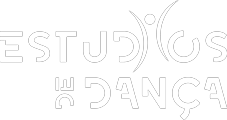Uma caminhada pelas ruas consumidas pelo turístico: Um Olhar para uma Lisboa sob efeitos da pandemia COVID-19.
Este vídeo realizará uma série de reflexões sobre a influência da pandemia COVID-19, resultante do vírus SARS-CoV-2, na dinâmica sociocultural da cidade de Lisboa, especificamente na Baixa Lisboeta, os seus impactos no turismo e principalmente sobre a vida das pessoas que vivem e partilham esta cidade.
Um novo quadro mundial foi revelado no dia 11 de março de 2020, data em que a Organização Mundial de Saúde (OMS) declarou que o mundo vivia uma pandemia. O isolamento social foi usado como uma das medidas sanitárias exigidas para conter o referido vírus, as ruas ficaram vazias e o encerramento de vários espaços públicos afetou a vida de todas as pessoas em Lisboa e no mundo.
Para compreender a nova realidade e principalmente para perceber como esta situação afetou o turismo nesta cidade, é necessário recorrer ao olhar do antropólogo Hernández Ramirez (2006). O autor, na sua perspectiva holística acerca do turismo, o interpreta como um fato social total no sentido proposto por Marcel Mauss (1971), ou seja, o turismo é um fenómeno que está presente em todos os níveis e em todos os setores da vida social, desde os menos visíveis aos tangíveis da realidade. Por exemplo, em sistemas de sinais e processos simbólicos (Lanfant, 1995), nas expectativas, motivações e práticas sociais dos indivíduos e nas formas como vemos e nos relacionamos com os outros (p. 1).
Este vídeo serve de ferramenta para um olhar multidisciplinar no âmbito das Ciências Sociais e Humanas, a partir de um olhar antropológico, que vai da Geografia até à Etnomusicologia e pára pelo Cinema. Desta forma, foi possível notar diversos mecanismos que moldam toda a dinâmica social na Baixa Lisboeta, muito comuns das cidades contemporâneas em todo o mundo: o cosmopolitismo, o controle social, o poder, a desigualdade, os conflitos e toda a disputa espacial e simbólica. O desafio é analisar o campo, com o objetivo de trazer experiências maduras, ricas de contextos mundiais, a partir de práticas colaborativas, para examinar as relações de poder inerentes e oferecer novas estratégias para transformar positivamente o mundo em que vivemos.
Roteiro e texto: Antônio Claudio do Nascimento Silva
Imagens e edição de imagens: Pedro Barros
-----
[EN]
A walk through the streets consumed by tourism: A look at a Lisbon under the effects of the COVID-19 pandemic
This video will carry out a series of reflections on the influence of the SARS-CoV-2 pandemic (COVID-19) on the socio-cultural dynamics of the city of Lisbon, specifically in the Lisbon Baixa (Downtown) area, its impacts on tourism and mainly on the lives of the people who live and share this city.
A new world picture was revealed on March 11th, 2020, the date on which the World Health Organization (WHO) declared that the world was experiencing a pandemic. Social isolation was used as one of the sanitary measures required to contain the virus, the streets became empty, and the closure of various public spaces affected the lives of all people in Lisbon and around the world.
In order to understand the new reality and mainly to understand how this situation affected tourism in this city, it is necessary to turn to the anthropologist Hernández Ramirez (2006). The author, in his holistic perspective on tourism, interprets it as a total social fact in the sense proposed by Marcel Mauss (1971), that is, tourism is a phenomenon that is present at all levels and in all sectors of social life, from the less visible to the tangible of reality, such as sign systems and symbolic processes (Lanfant, 1995), in the expectations, motivations and social practices of individuals and in the ways we see and relate to others (p. 1).
This video serves as a tool for a multidisciplinary look within the Social Sciences and Humanities, ranging from Geography to Ethnomusicology, followed by Cinema, and from an anthropological point of view. In this way, it was possible to notice several mechanisms that shape the whole social dynamics in Lisbon Downtown, very common in contemporary cities around the world, and they are cosmopolitanism, social control, power, inequality, conflicts, and all the spatial and symbolic dispute. The challenge is to analyse the field, with the aim of bringing mature, rich experiences of world contexts, from collaborative practices, to examine the inherent power relations and offer new strategies to positively transform the world we live in.
Script and text: Antônio Claudio do Nascimento Silva
Images and image editing: Pedro Barros
Antônio Cláudio do Nascimento Silva (Faculdade de Ciências Sociais e Humanas, Nova de Lisboa)
Estudou no Conservatório Pernambucano de Música – Brasil, é licenciado em Música na UFPE – Brasil (2006). Atualmente está no Mestrado em Ciências Musicais – Etnomusicologia na NOVA-FCSH com o projeto de investigação: Músico de rua: Cosmopolitismo, Conflito, e urbanidade, desenvolvida no âmbito do projeto “Sounds of Tourism”.
He studied at Conservatório Pernambucano de Música, Brazil, graduated in Music at UFPE, Brazil (2006). He is currently doing his Master's in Music Sciences – Ethnomusicology at the Nova de Lisboa NOVA-FCSH with the research project: "Street musician: Cosmopolitanism, Conflict, and Urbanity", developed in the scope of the project "Sound of Tourism".
